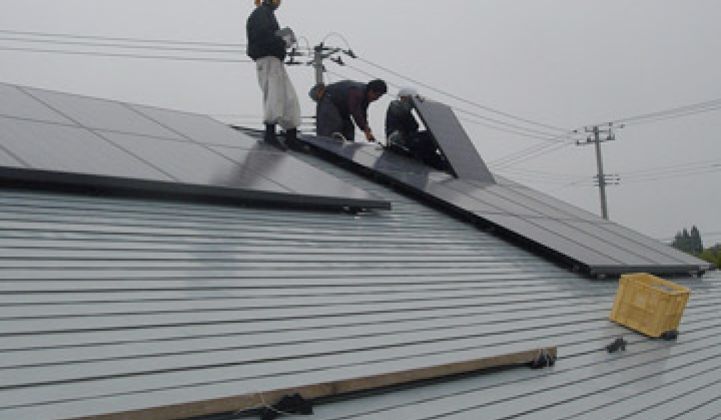A few months ago we broke the news that Clean Power Finance was becoming a residential PPA provider.
The firm just received a $75 million fund from Google to pursue that goal and finance residential solar projects.
Google has invested more than $850 million in renewable energy and comes fresh off of creating a $280 million fund to finance residential solar projects with SolarCity in June of this year. That fund is SolarCity’s largest project financing fund and the largest residential solar fund created in the U.S.
Kleiner Perkins and Google Ventures made a significant investment in solar SaaS firm Clean Power Finance (CPF) late last year and just recently provided $25 million for the firm. Until that time, CPF's business was providing a standardized software tool that lets solar panel installers speed up the sales proposal, rebate, and lead generation processes. Previous investors have included Claremont Creek Ventures, Clean Pacific Ventures, Sand Hill Angels, and clean tech investor Gary Kremen.
Kremen, even before Clean Power Finance's Sept 2006 incorporation, had asked publicly, "Why can't buying solar be like buying a car with POS [point-of-sale] financing? Solar is in roughly the same price range -- you should get credit at the same time you make the purchase."
Unlike SolarCity or SunRun, according to CleanPower Finance, CPF "doesn't want to be branded in the entire equation." They'd like to consider themselves a "white label company" where "the integrator owns the customer."
There are a few big names in residential solar leasing -- SolarCity, Sungevity, and SunRun. (SolarCity has their own installers; SunRun and Sungevity work with a network of installers.) There are also other, smaller residential solar leasing firms such as Solar Universe, Ontility, SunPower, SolarCraft, Sun Edison, CentroSolar, and Suntech’s BriteLease program.
In a lease arrangement, the leasing company covers the cost of installing solar panels, typically on the rooftop of the customer’s home. In this model, the leasing company owns the system, rather than the homeowner. Solar leasing companies receive any state and federal tax credits and other incentives available for alternative-energy installations. The homeowner agrees to pay the leasing company a predetermined monthly payment over the term of the lease, and receives the financial and environmental benefits from all of the power produced by the solar energy system. Solar customers buy additional power as needed from their local utility at the going rate. They may also sell excess energy back to the local utility.
Solar leases typically run between 15 and 20 years. If the customer sells the home within that time, the lease agreement transfers to the new homeowner, pending credit approval.
CPF joins the list of PPA providers -- a list that can afford to be longer in order to make it easier to get solar on the roofs of more homeowners.



